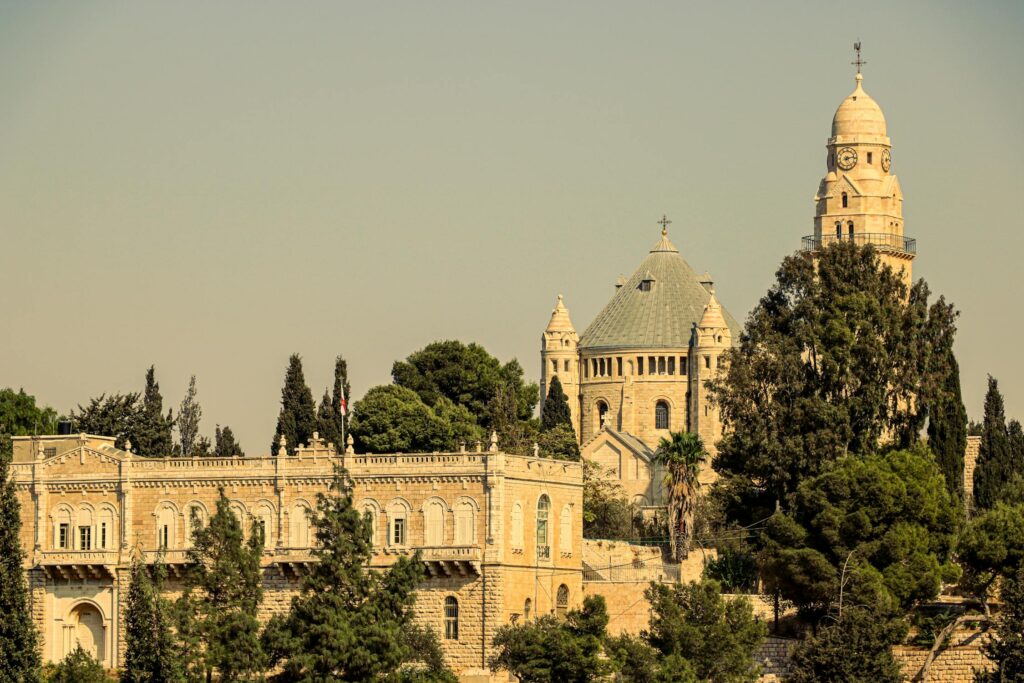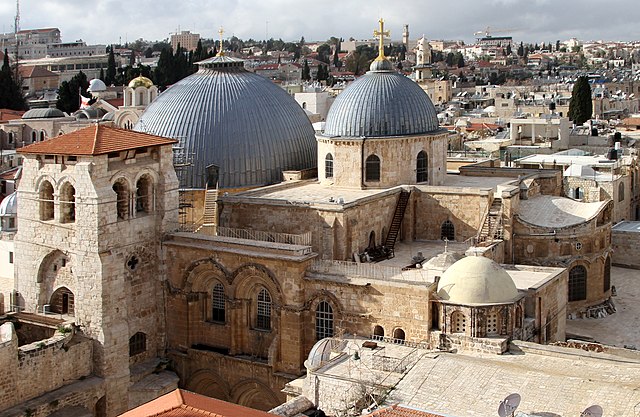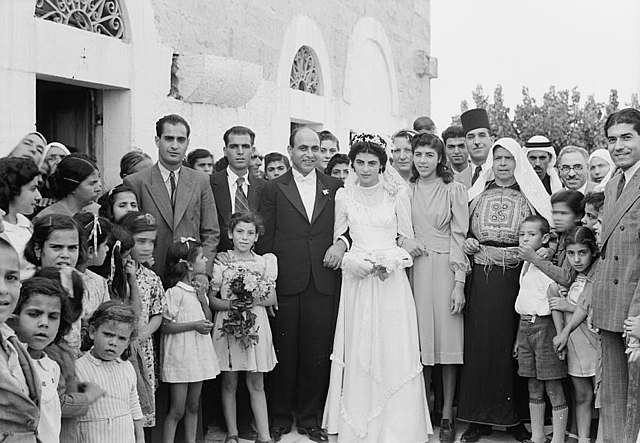The Marginalization of Christians in Historic Palestine
By Mehdi El Merini /Arab America Contributing Writer

The Christian community in historic Palestine, though numerically small, is historically significant, tracing its roots back to the earliest days of Christianity. However, in modern Israel, both Palestinian and Arab-Israeli Christians face systemic discrimination and mistreatment. This article explores the historical and contemporary challenges produced by the marginalization of Christians in historic Palestine, highlighting the apartheid-like conditions and stories of hardships caused by the occupation of their land.
Historical Context of Marginalization
The marginalization of Christians in historic Palestine cannot be fully understood without examining the broader historical context. Following the establishment of the modern State of Israel in 1948, the Palestinian Christian population—like their Muslim counterparts—suffered immensely during the Nakba, or “catastrophe.” Over 760,000 Palestinians were displaced, including many Christians, as their villages were destroyed or depopulated.
A significant example of this is the village of Iqrit, a predominantly Christian village whose residents were forcibly evacuated by Israeli forces in 1948. Despite promises that they could return, the village was demolished in 1951, leaving only the church standing. The story of Iqrit is emblematic of the broader Palestinian Christian experience—displacement, broken promises, and the erasure of their historical presence in the land.
Systemic Discrimination
Today, Christians in Israel and the occupied Palestinian territories face systemic discrimination that affects their daily lives. While Israel is often lauded as a democracy, its policies and practices toward non-Jews, particularly Palestinians (including Christians), have been described as akin to apartheid.
One of the clearest examples of systemic discrimination is Israel’s “Nation-State Law,” passed in 2018, which explicitly states that the right to national self-determination in Israel is unique to the Jewish people. This law effectively renders non-Jews, including Christians, second-class citizens. Palestinian Christians, who are both ethnically and religiously distinct from the Jewish majority, find themselves particularly marginalized under this framework.
For instance, in Jerusalem, Christians face severe restrictions on their freedom of movement, particularly during religious holidays. The Israeli authorities often impose barriers that prevent Christians from accessing holy sites, such as the Church of the Holy Sepulchre, one of Christianity’s most sacred locations. A Palestinian Christian woman from Bethlehem recounted how she was denied a permit to visit her family in Jerusalem during Easter, a common experience that highlights the daily indignities faced by the Christian community.

Socioeconomic Marginalization
Christians in Israel, particularly those of Palestinian descent, also face significant socioeconomic challenges. The town of Nazareth, the largest Arab city in Israel and a significant Christian center, is a stark example of this disparity. Nazareth receives far less funding and resources from the Israeli government compared to nearby Jewish cities like Upper Nazareth (Nazareth Illit). This underfunding affects everything from infrastructure to education, contributing to higher unemployment and poverty rates, furthering the marginalization of Christians in historic Palestine.
In a 2017 report by the Taub Center for Social Policy Studies, it was found that despite having some of the highest levels of education in Israel, Arab Christians frequently face employment discrimination. Employers in Israel often favor Jewish candidates, leaving Arab Christians with limited job opportunities, especially in their fields of expertise. This systemic bias contributes to ongoing economic challenges and marginalization for the Christian community in Israel.
Religious and Cultural Discrimination
Religious discrimination against Christians in Israel is also prevalent. While Israel promotes itself as a land of religious freedom, Christians often face hostility and vandalism, particularly from extremist groups. In 2014, for example, the Dormition Abbey in Jerusalem, a major Christian site, was vandalized with anti-Christian graffiti, including phrases like “Death to Christians” and “Jesus is a monkey.” Despite condemnations from Israeli officials, such incidents are rarely met with effective legal action, contributing to a climate of impunity for religiously motivated crimes.
Another example of religious discrimination is the continued pressure on Christian schools in Israel. These schools, which serve both Christian and Muslim students, have faced severe budget cuts in recent years. In 2015, Christian schools in Israel went on strike to protest these cuts, which they argued were part of a broader attempt to weaken their institutions and force students into the state-controlled Jewish education system. The strike highlighted the broader challenges faced by Christians in preserving their cultural and religious identity in a state that often marginalizes their contributions.
Personal Accounts
Personal stories further illuminate the marginalization experienced by Palestinian and Israeli Christians. One such story is that of a Palestinian Christian family from Beit Jala, a town near Bethlehem. The family owns a small olive grove that has been in their family for generations. However, the expansion of the Israeli separation barrier has cut them off from their land, making it nearly impossible for them to access their olive trees. The father of the family, a man in his 60s, described how Israeli soldiers routinely block their attempts to reach their land during the olive harvest, a crucial time for their livelihood. This type of land confiscation and restricted access is a common experience for Palestinian Christians, who find themselves increasingly isolated and economically disenfranchised.
Another poignant story is that of a Christian shopkeeper in the Old City of Jerusalem. His shop, which has been in his family for over a century, is struggling due to the declining number of Christian tourists and pilgrims, exacerbated by frequent closures and restrictions imposed by Israeli authorities. He recounted how his son decided to emigrate to Europe, unable to see a future in a city where Christians are becoming a shrinking minority. The shopkeeper’s story reflects the broader trend of Christian emigration from Israel and the Palestinian territories, driven by the pressures of discrimination and economic hardship.

A Murky Future?
The marginalization and mistreatment of Palestinian and Israeli Christians in historic Palestine are part of a broader pattern of systemic discrimination that affects non-Jews in the state. From political and legal disenfranchisement to socioeconomic challenges and religious discrimination, Christians in Israel and the occupied territories face a range of obstacles that threaten their future in the land of their ancestors.
The stories of individuals and communities, like those from Iqrit, Nazareth, and Jerusalem, highlight the real human impact of these policies. Addressing the marginalization of Christians in historic Palestine requires a fundamental shift in how the state treats its non-Jewish citizens, ensuring that all people, regardless of their religion or ethnicity, have equal rights and opportunities. Without such changes, these Christian communities will continue to diminish, along with the rich cultural and religious diversity that has defined the Holy Land for centuries.
Check out our Blog here!








